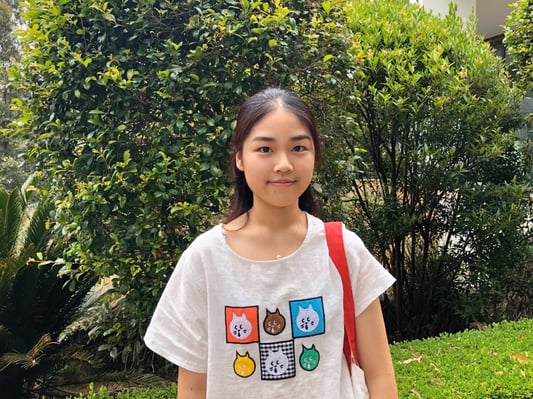It’s tempting, as a writer, to try to tackle the BIG themes in your work: the meaning of life, the cruelty of war, the complications of love. But as Novel Writing Competition winner Aileen Bak (Australia) reminds us, it’s in the small moments where inspiration is born and great art flourishes. As she says, “the most mundane memories can act as a catalyst for something wondrous and fantastical.”
Below, we talk to Aileen about the memory that inspired her prize-winning piece, her plans for turning it into a novel, and how she sums up her writing life in 2020. Read on!

For this competition, we asked for a novel excerpt; tell us about the larger work (whether in-progress, completed, or not-yet-started) that your entry comes from.
“The Floating Anchor” was originally an 800-word short story. However, when opportunity arises, I would love to extend it into a novel that delves deeper into the struggles and rich history of Haenyeos. Moreover, I would further elaborate on Soomi’s relationship with her daughter and mother, in order to create more intimate, personal scenes that demonstrate her internal conflict.
Where did the idea for this piece come from, and do you have any advice for other young writers who are struggling to come up with or narrow down writing topics?
It was two years ago when I went on a family trip to my home country, Korea, and visited the country’s largest island Jeju-do. There I witnessed a group of elderly Haenyeo women, some of them still in their diving gear as they sold their day’s catch of fresh seafood. I found it truly admirable and inspiring that these women continued to fight to preserve their long-lived culture at an age when many would choose to retire. Through writing “The Floating Anchor,” I wanted to share the struggles Haenyeo women face and highlight their rich culture in hopes to preserve the significance of Haenyeo history.
I would tell other writers who may be struggling to come up with writing topics to always draw on personal experiences, feelings, or emotions. Even the most mundane memories can act as a catalyst for something wondrous and fantastical. I have found building upon small ideas and allowing them to accumulate to be an effective strategy when deciding writing topics, as it is often too easy to be overwhelmed with vast ideas and broad themes.
Guest Judge Randa Abdel- Fattah called your entry “A tremendous achievement in such a small number of words.” How did you pack so much in, while making sure you didn’t overwhelm the reader?
I am so flattered by Guest Judge Randa Adbel-Fattah’s words! I was very selective with what to include in my story. In earlier drafts of the piece, I had overcomplicated my storyline with explicit details of Haenyeo history and culture, and ultimately, had to be wise with what to include and exclude to make a more cohesive story.
What word (or phrase) summed up your writing life in 2020, and what word (or phrase) do you hope will sum up 2021?
A word that sums up my writing life in 2020 is “rekindle.” Due to the high school curriculum’s emphasis on critical essay writing, for quite some time I had overlooked the importance of creative writing. However, through writing “The Floating Anchor,” I was able to revisit and rekindle my old passion for creative writing, an extension of my pre-existing love of reading.
A phrase I hope will sum up 2021 is from none other than this quote by Sylvia Plath: “everything in life is writable about if you have the outgoing guts to do it, and the imagination to improvise. The worst enemy to creativity is self-doubt.” I look forward to 2021 as a year where I don’t restrict or doubt my own capabilities, so that I may better flourish and grow as a writer.





